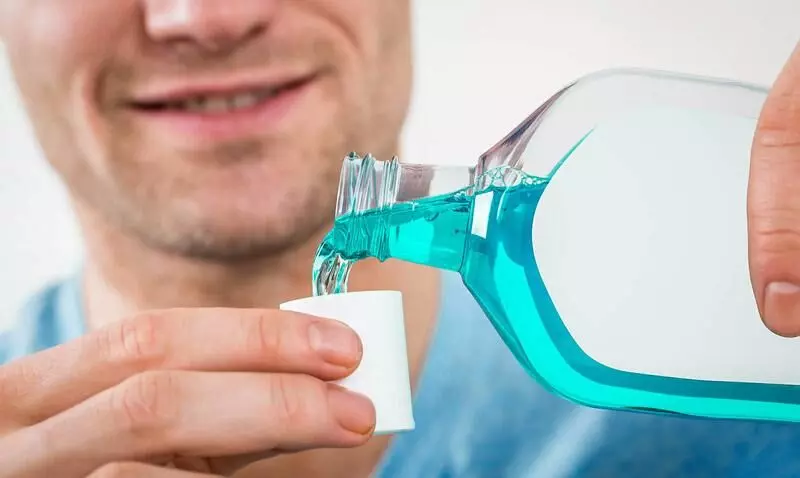
Daily mouthwash may inactivate human coronaviruses: Study
text_fieldsRepresentational Image, source: https://wmsmile.com
New York: Certain oral antiseptics and mouthwashes could inactivate human coronaviruses, says a study in the Journal of Medical Virology.
Some of these products might help reduce virus load in the mouth after Covid-19 infection, and lower its spread.
"While we wait for a vaccine to be developed, methods to reduce transmission are needed. The products we tested are readily available and often already a part of people's daily routines," said study researcher Craig Meyers from the Penn State University in the US.
The research team tested several oral and nasopharyngeal rinses in a laboratory setting for their ability to inactivate human coronaviruses, which are similar in structure to SARS-CoV-2.
The products studied are a one per cent solution of baby shampoo, peroxide sore-mouth cleansers, and mouthwashes.
Several of the nasal and oral rinses had a strong ability to neutralize human coronavirus, suggesting these products may have the potential to reduce the amount of virus spread by people who are Covid-19-positive.
The study used a test to replicate the interaction of the virus in the nasal and oral cavities with the rinses and mouthwashes.
They treated solutions containing a strain of human coronavirus, which served as a readily available and genetically similar alternative for SARS-CoV-2, with the baby shampoo solutions, various peroxide antiseptic rinses and various brands of mouthwash.
They allowed the solutions to interact with the virus for 30 seconds, one minute and two minutes, before diluting the solutions to prevent further virus inactivation.
According to Meyers, the outer envelopes of the human coronavirus tested and SARS-CoV-2 are genetically similar so the research team hypothesizes that a similar amount of SARS-CoV-2 may be inactivated upon exposure to the solution.
To measure how much virus was inactivated, the researchers placed the diluted solutions in contact with cultured human cells.
They counted how many cells remained alive after a few days of exposure to the viral solution and used that number to calculate the amount of human coronavirus that was inactivated as a result of exposure to the mouthwash or oral rinse that was tested.
The one per cent baby shampoo solution, which is often used by head and neck doctors to rinse the sinuses, inactivated greater than 99.9 per cent of human coronavirus after a two-minute contact time.
Several of the mouthwash and gargle products also were effective at inactivating the infectious virus.
Many inactivated greater than 99.9 per cent of the virus after only 30 seconds of contact time and some inactivated 99.99 per cent of the virus after 30 seconds.
The results with mouthwashes are promising and add to the findings of a study showing that certain types of oral rinses could inactivate SARS-CoV-2 in similar experimental conditions, the study noted.
Recently, a study, published in the Journal of Infectious Diseases, found that Sars-Cov-2 viruses can be "inactivated" using commercially available mouthwashes.
This report from IANS has been edited























